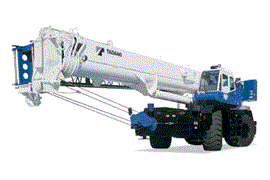Strabag, Electreon test German roads for inductive EV charging
12 June 2024
Citing a desire to promote “e-mobility”, Strabag – an Austria-based construction company and civil engineering firm – said it successfully installed in-road inductive charging technology, with the help of wireless charging company Electreon, in Bad Hersefled, Germany.
 Aerial view of Strabag and Electreon’s test track for an EV-charging roadway. (Image: Strabag)
Aerial view of Strabag and Electreon’s test track for an EV-charging roadway. (Image: Strabag)
The project was funded by the German state of Hesse, with Strabag stating the partnership “realised a first roadway with a technology that charges electric vehicles contactlessly.”
As part of the testing, the team installed 23 copper coils into the road, which were wired together and connected to a power source adjacent the roadway.
When vehicles equipped with remote charging receivers drove over the test site, Strabag said a wireless electric connection was received. The coils also supply charges to equipped vehicles that are not moving, meaning the application could be used for motorways or parking depots.
“The innovative process offers opportunities, above all, for closed cycles, such as bus or taxi lanes in public transport. Charging can be done either dynamically while driving or statically, for example when parking,” said Strabag. “The coils could also be used on the motorway and support e-trucks, for example, on steep inclines.”
To install, the test track was milled and then set with the copper coils, which are equipped with electric transmitters. Once the coils were wired together and sourced to power, they were then covered with asphalt.
Further testing and fine-tuning of the technology will be required, said Strabag, including upgrades to the coil system.
Electreon stated its developing coils with a higher charging capability.
 Workers lay asphalt over the top of the inductive copper coils for the pilot charging road. (Image: Strabag)
Workers lay asphalt over the top of the inductive copper coils for the pilot charging road. (Image: Strabag)
Dr Andreas Wendt, managing director of Electreon Germany, said, “We will push ahead with further projects that show how powerful this technology is. With their help, we can reduce the size and weight of the batteries – for more sustainable mobility.”
More EV-charging road developments to come
The success in Germany mirrors progress on a US-based project at Purdue University in Indiana. There, a group of civil engineers and construction professionals also successfully produced a pilot EV-charging road in cooperation with local government.
Electreon is also working on a similar project in Michigan, US, where a quarter-mile stretch of public roadway near where the redeveloped Michigan Grand Central building is located. The prototype – which is described as a first in the US for a public passage – is being tested this year with hopes that a rebuild of a neighbouring highway (US-12) could also be equipped with the technology.
Moving forward, commercial rollout of a wirelessly-charging road or parking lot is still likely years away, regardless of the region.
“Strabag is already working together with Electreon on further research projects with various partners from industry and science,” added the company.




